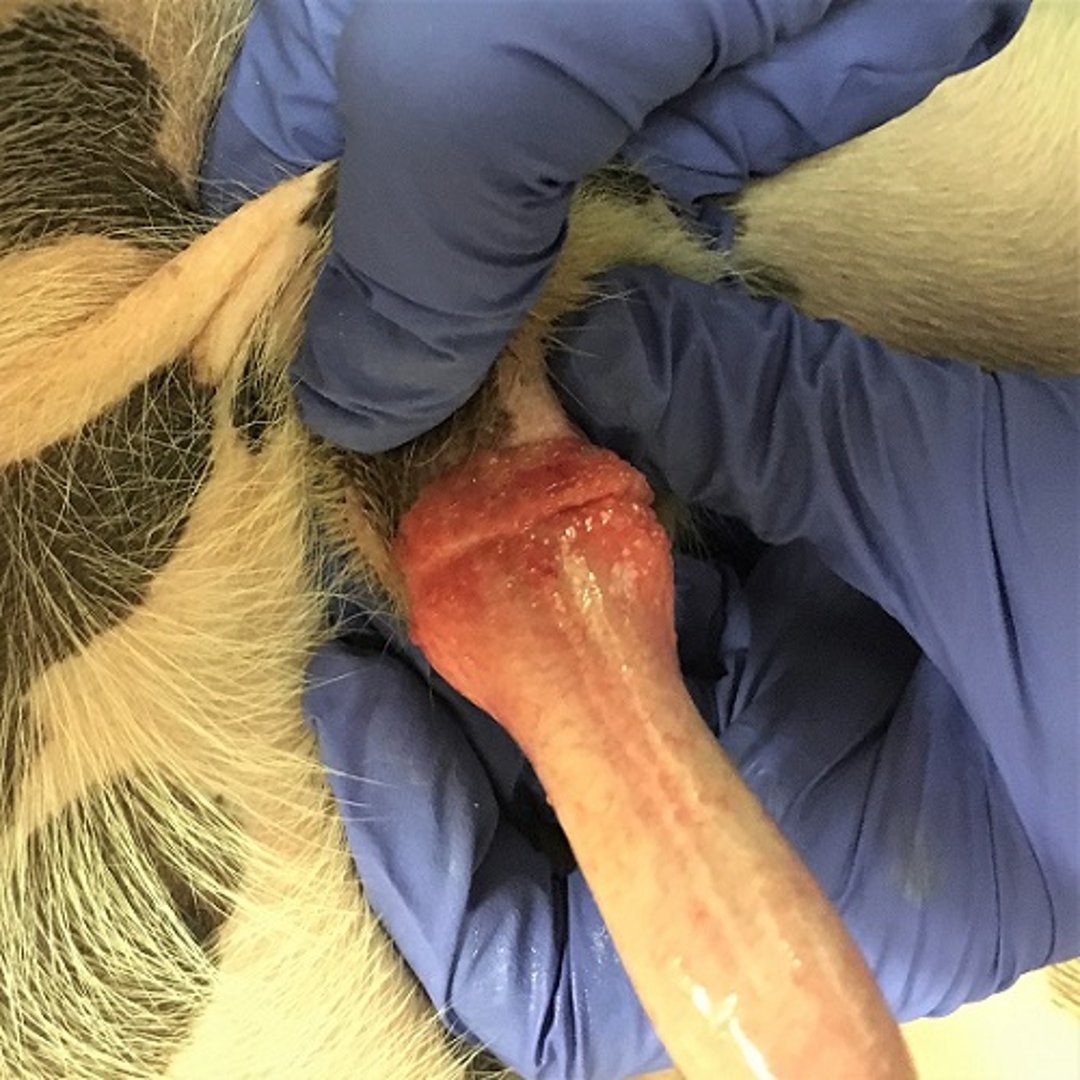Courtesy of Dr. Autumn Davidson.
Inflammation of the penile or preputial mucosa occurs in dogs. Normal preputial secretions usually do not result in overt clinical signs. A slight mucoid preputial discharge is present in many sexually mature dogs and is of little clinical significance. Clinical balanoposthitis results in excessive, often mucopurulent preputial discharge that can accumulate on the pelvic limbs and be associated with excessive preputial licking. More severe balanoposthitis can result from:
lymphoplasmacytic inflammation
bacterial overgrowth
penile trauma
penile or preputial neoplasia
foreign bodies
urinary tract infection
urolithiasis
phimosis or paraphimosis
Swelling of the prepuce and pain are rarely present except in cases of trauma, snake bite, or foreign bodies. If signs of systemic illness are present, the possibility of a more serious concomitant disorder should be considered. Balanoposthitis is rare in cats.
Courtesy of Dr. Autumn Davidson.
Courtesy of Dr. Autumn Davidson.
Courtesy of Dr. Autumn Davidson
The penis and prepuce should be thoroughly examined, to the level of the fornix, for underlying predisposing factors. The use of saline infusion through a rigid endoscope facilitates this examination, but an otoscope can be used if necessary. Sedation or general anesthesia may be needed. Preputial cytology may be helpful. Bacterial cultures of the preputial cavity, although sometimes difficult to interpret because of the presence of normal preputial flora, may help identify unusual organisms or abnormal monocultures and determine antibiotic sensitivities for refractory cases. Foreign bodies can be submucosal and difficult to see, so tiny tracts should be explored. Ultrasonography can facilitate the discovery of foreign body tracts, penile trauma (eg, hematoma, fractured os penis), or masses. Cytology or biopsy of mucosal lesions may be indicated.
Treatment includes correcting any predisposing factors, clipping long hair away from the preputial orifice to facilitate hygiene, and thoroughly flushing the preputial cavity with a mild, dilute antiseptic (eg, dilute povidone-iodine or chlorhexidine) or sterile saline solution. If bacterial infection is suspected, an antibiotic ointment may be infused into the preputial cavity for 7–10 days, with the option of systemic antibiotics if indicated by severity. Short-term systemic, nonsteroidal, anti-inflammatory therapy can be helpful. Prevention of excessive licking by the use of an Elizabethan collar is indicated. Castration may diminish genital secretions but will not abolish them.

